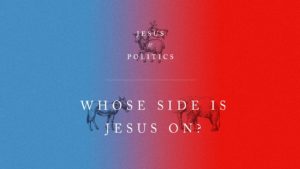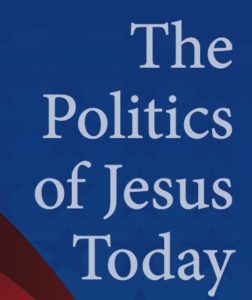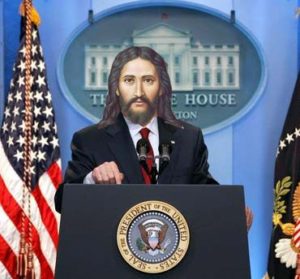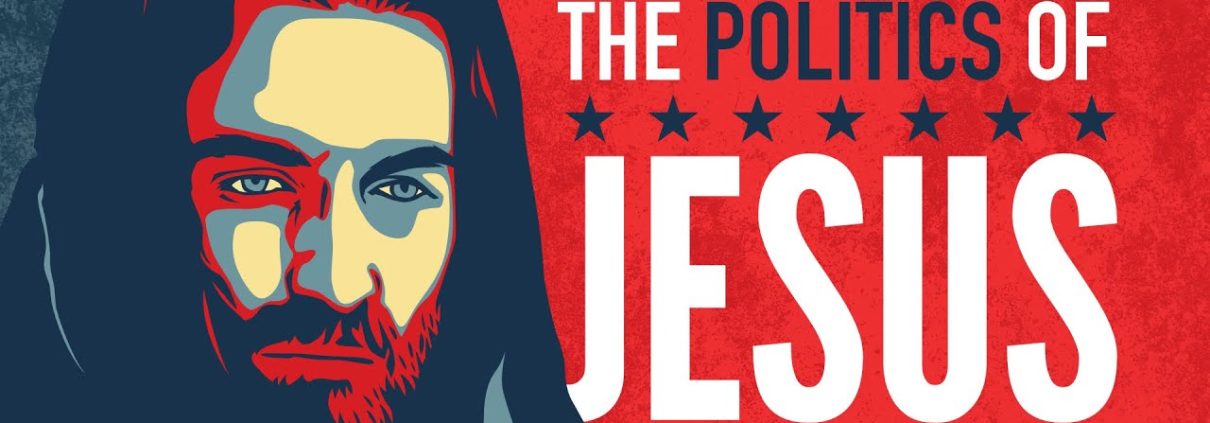Preaching About the Politics of Jesus
Preaching About the Politics of Jesus
In the last post we started reflecting on preaching on politics. In this post we are continuing to consider preaching about the politics of Jesus in our church.
Jesus And First Century Politics
Obviously, Jesus didn’t live in a democracy. When he lived in Palestine (now modern Israel), the whole nation was under the control of the Roman Empire. So he didn’t reflect, as those of us who live in democracies, on the subject of for whom we should vote. And yet, we do get some idea of Jesus’ thoughts about politics in his choice of disciples.
A Zealot and a Tax Collector?
In the next post we’ll look at the question, “For whom would Jesus vote?”. However, we do get an idea from his  choice of disciples that he wasn’t about to anoint any one view of the politics of the day. Think about what it must have been like to have Matthew, the tax collector, and Simon the Zealot among the group that spent 3 years with Jesus. Matthew was a tax collector.
choice of disciples that he wasn’t about to anoint any one view of the politics of the day. Think about what it must have been like to have Matthew, the tax collector, and Simon the Zealot among the group that spent 3 years with Jesus. Matthew was a tax collector.
Jews hated tax collectors, and considered them to be puppets of Rome. In order to get this position, Matthew would have had to bid on the privilege of collecting taxes in a particular area. That amount would be guaranteed to the Empire. But if he could collect more than that bottom-line amount, it would be so much the better for him. Thus, tax collectors were often wealthy, their money gained from the peasants.
 Simon the Zealot, on the other hand, was a member of a group that was committed to the overthrow of the Roman Empire by violence. The Romans posted in Palestine and collaborators with Rome feared the Zealots, because they often assassinated their enemies.
Simon the Zealot, on the other hand, was a member of a group that was committed to the overthrow of the Roman Empire by violence. The Romans posted in Palestine and collaborators with Rome feared the Zealots, because they often assassinated their enemies.
Imagine Matthew and Simon assigned to room together. What do you do with that as you are preaching about the politics of Jesus in your church?
Did Jesus Support Any Party?
So, did Jesus have a preference for any of the political parties of the day? No, he did not. He obviously chose not to identify with any of the factions of this day, neither in the religious world (Pharisees, Sadducees and Essenes), nor in the politics of a Roman controlled country.
Preaching About the Politics of Jesus
Jesus showed no interest in political power. In John 6, we have the account of the time that he fed 5000 people with five loaves of bread and two fish. The people tried to take Jesus by force and make him king. We read that, “Jesus, knowing that they intended to come and make him king by force, withdrew again to a mountain by himself.” (John 6:15). Jesus wasn’t interested in an earthly kingdom.
Again, when the crowd brought Jesus before Pilate, the Roman Procurator asked about his political alignment and aspirations. “Are you the King of the Jews?”, Pilate asked.
Jesus answered, “My kingdom is not of this world. If my kingdom were of this world, my servants would fight so that I would not be delivered to the Jews; but now my kingdom is not from here.” (John 18:33-36)
Even when his life was on the line, Jesus showed no interest in the politics of his day.
What Do We Do With This In Our Preaching?
So how do we go about preaching about the politics of Jesus to our people? How do we relate the politics of Jesus  to the situation of our present day when our people plan to vote for one candidate or another? I’m going to reflect on that subject in the next post. In the United States the Church, represented by the Evangelicals, sought and exercised political power. Their desire for earthly power affected the preaching of leaders in those churches. Is that good and right? Let’s think about it some more in the next post.
to the situation of our present day when our people plan to vote for one candidate or another? I’m going to reflect on that subject in the next post. In the United States the Church, represented by the Evangelicals, sought and exercised political power. Their desire for earthly power affected the preaching of leaders in those churches. Is that good and right? Let’s think about it some more in the next post.
Here is a book on the subject if you want to explore more fully.



